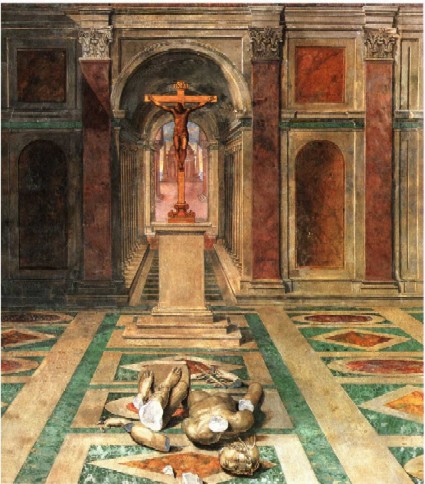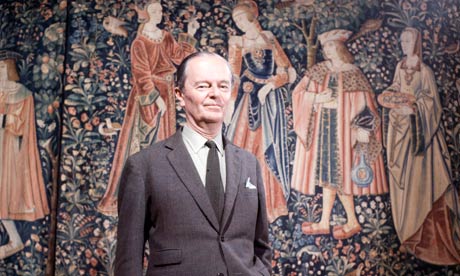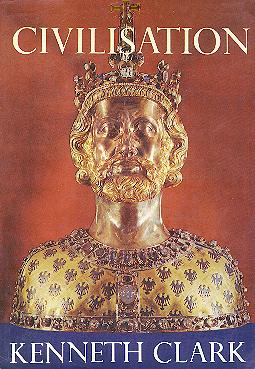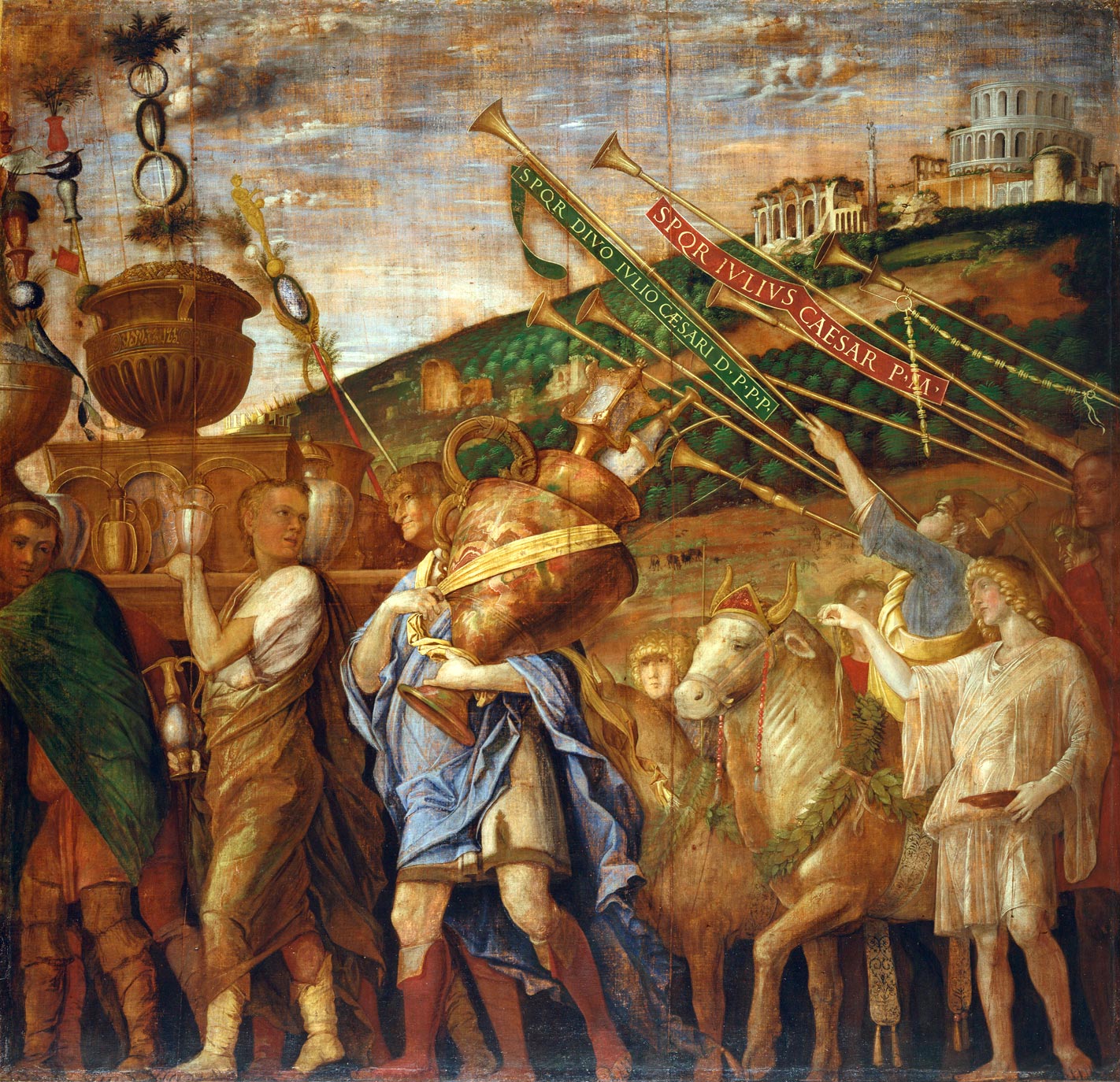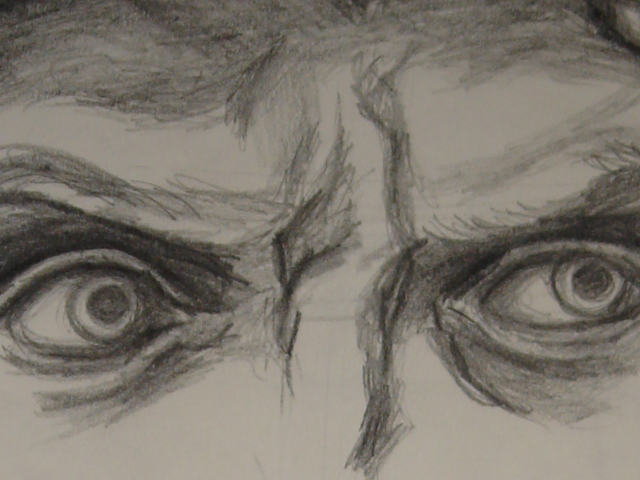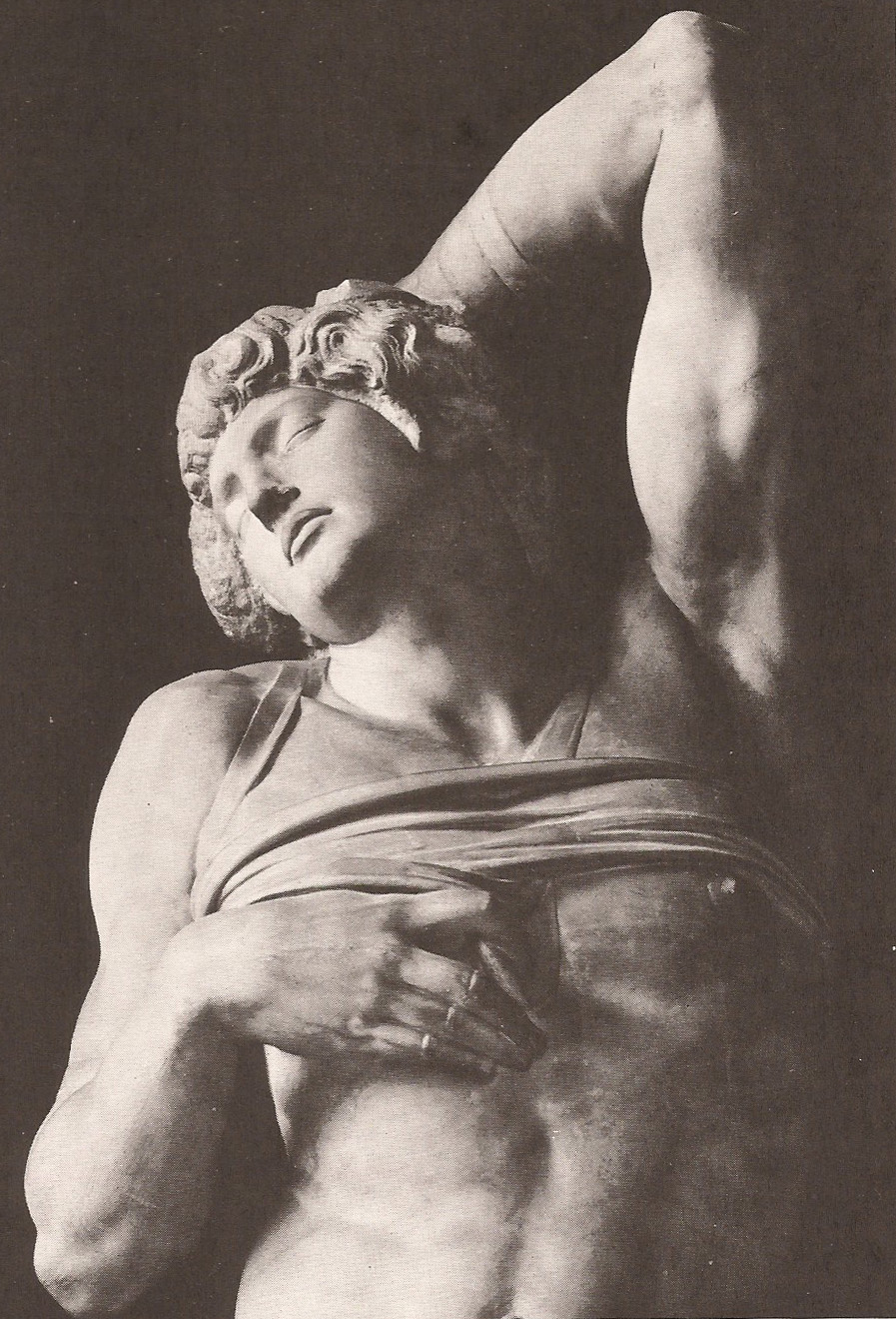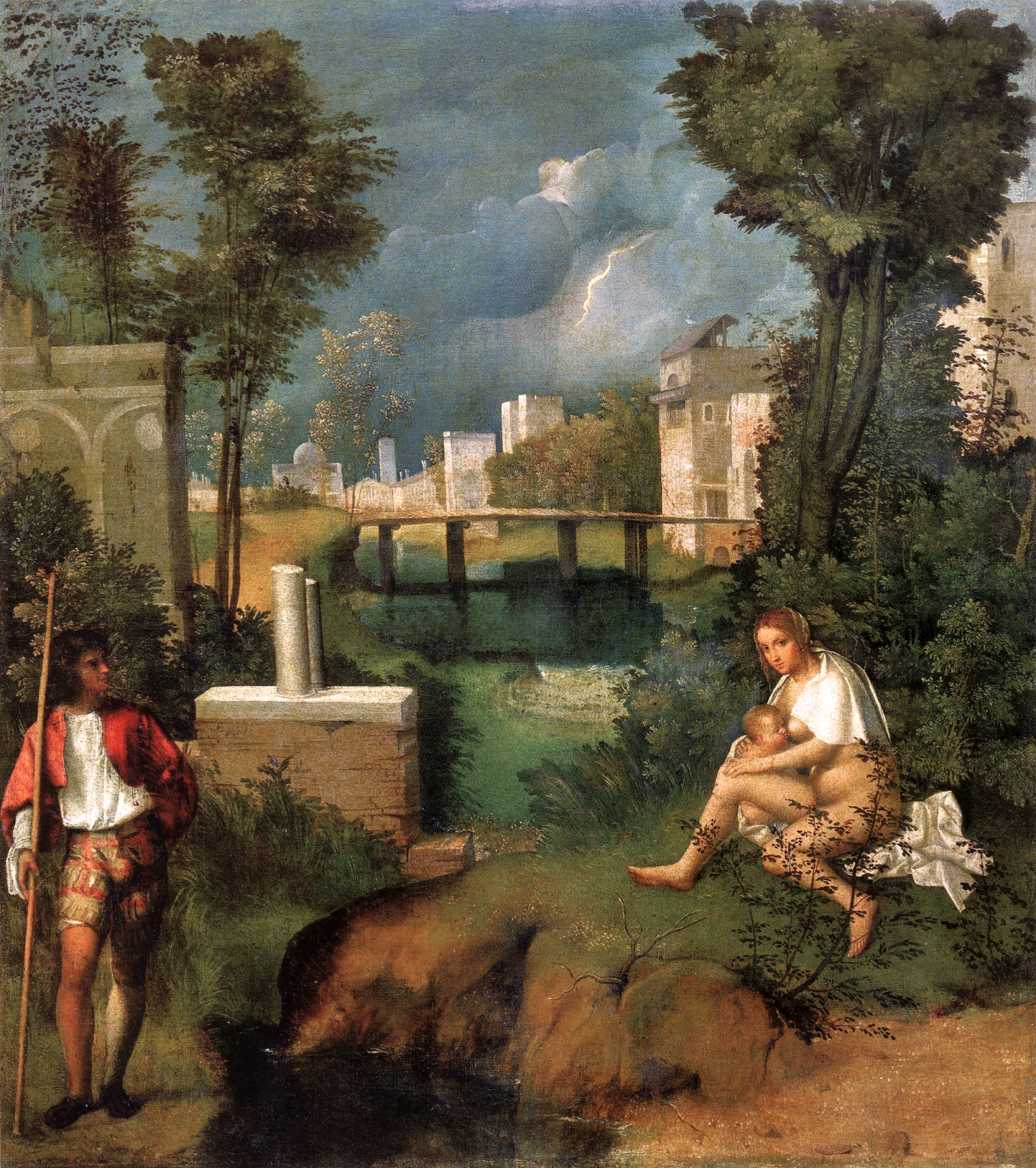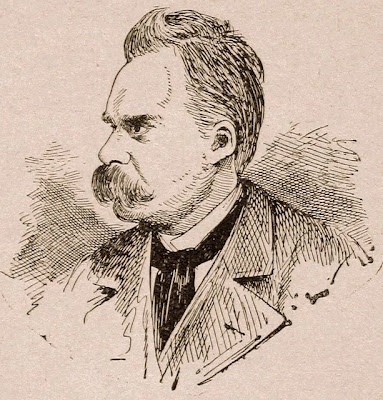by Matt Koehl
III. The Decline of Christianity

The imposition of Christianity on the Aryan peoples of Northern Europe had one lasting effect. It resulted in an inner tension, a disquiet—an angst—which has been a protruding feature of Western culture from its inception. Throughout the history of the West, there has always existed a soul struggle keenly felt by the more perceptive spirits of the race, occasioned by the contradiction between the inverted values and tenets of an Oriental/Semitic belief system on the one hand and the natural religious feeling of Nordic/Aryan man on the other.
If the former furnished the ideological matrix of the culture, it was the latter which provided the creative inspiration, the divine spark. Indeed, the greatest moments of Western culture as a manifestation of Aryan genius—whether expressed in a specifically Christian or extra-Christian form—occurred despite the stricture of Church dogma, rather than because of it. Dante, Chaucer, [Edmund] Spenser, Shakespeare, Milton, Goethe, Schiller, Shelley, Wordsworth, Keats, Byron, Leonardo, Michelangelo, Raphael, Botticelli, Dürer and Rembrandt all testify to this, no less than do Vivaldi, Bach, Handel, Haydn, Mozart, Beethoven, Wagner and Bruckner.
As we have seen, the external character of Christianity was greatly modified in its metamorphosis from a small Jewish cult into the mighty religion of the West. The medieval institution known as chivalry, in fact, with its refined honor code—which save for its Christian trappings more properly reflected the outlook and mores of a pre-Christian time—resulted from this very process, and provided a modus vivendi for opposing spiritual interests during the Middle Ages.
Thus, through a mutual accommodation of sorts was the underlying contradiction largely contained. And yet despite any institutional adjustment, the unease deriving from an alien idea remained latent within the fabric of the culture. The social and intellectual response to this inner tension varied. For their part, the kings, emperors and other secular rulers tended to treat the matter with cynical detachment, accommodating and offering resistance as political requirements dictated.
Among scholars and thinkers, on the other hand, there were those who, like Giordano Bruno, rose in open revolt against Church dogma. More often, however, the stirrings of disquiet were manifested in subtle attempts to orient Christian doctrine toward innate Aryan religiosity. This was particularly true of the mystics of the Middle Ages, like Scotus Erigena, Amalric of Bena and Meister Eckhart, who—going beyond the theology of the Church—looked inward into their own souls and to Nature itself to discover the kingdom of God.
It was with the Renaissance, however, that there appeared the most significant movement to challenge Church doctrine—a movement which would, in fact, set in motion an irreversible chain of events leading ultimately to the discrediting of that very doctrine as the core idea of a culture.
Now, for the first time, was the Promethean impulse able to break out of the clerical mold. Art came to express, not merely a sterile Semitic outlook, but the feelings of a Northern racial soul—a most notable development, which announced that creative vitality had stepped beyond the mythic prescriptions of the culture. The entire Judeo-Christian cosmology was called into question by new discoveries in the natural and physical sciences. Exploration across unknown seas commenced. Perhaps the most revolutionary single development of this time, however, was the discovery of movable type by Johannes Gutenberg, which enabled a much wider circulation of knowledge—knowledge other than that bearing an ecclesiastical imprimatur, knowledge transcending the basic ideology of the culture.
* * *
The most important consequence of the Gutenberg invention is to be seen in the Protestant Reformation, to which it was a contributing factor and whose development it greatly influenced. Up until the time of Martin Luther, the focus of Christian authority was the Papacy, whose word was unquestioned in matters of faith and dogma. Now, with the great schism in Christendom, a direct challenge was presented to ecclesiastical authority. It certainly was not, of course, die intent of Luther and the other dissenters to undermine or eliminate the Christian faith; rather the opposite. They merely wished to reform it. And yet, by challenging the one unifying institution of Christendom and causing a split in Christian ranks, they inadvertently opened the door to disbelief in the Christian mythos itself.
To replace papal authority in matters religious, Luther proposed to substitute the authority of the Book; and so, with the prospect of employing the Gutenberg invention, he undertook the prodigious task of translating obscure Hebrew scriptures into the German language—to the everlasting misfortune of Christianity.
It is ironic that in his quest for spiritual freedom, the Great Reformer should have rejected the despotism of the Papacy only to embrace the tyranny of the Torah and the ancient Jewish prophets. The arcane texts which had remained on musty shelves behind cloistered walls and accessible only to priests and theologians now became universal property. And now, instead of one single authority in matters of Christian exegesis, everyone—and no one—became an authority. Out of this there could be but one result: contradiction and confusion.
The effect on intelligent minds, of course, was devastating. For here it was now possible—in the best Talmudic fashion—to prove mutually exclusive points of view by reference to the same Semitic texts. Not only that, but critical examination of biblical literature gave rise to serious doubt concerning the veracity and validity of the subject matter itself, not to mention the peculiar mentality of its various authors. For the first time, perceptive minds could observe the obvious contradiction between empirical reality and what was claimed as holy writ.
Gradually there grew the inner realization that the faith itself was flawed, and creative genius began to look beyond the ideology of the Church for inspiration and direction. Even in those instances where Christian motifs continued to provide the external form for artistic expression—such as in the works of Bach, Corelli and Rubens, for example—the vital daemon which spoke was clearly extra-Christian and of a religious order transcending Church dogma.
And so even the Counter-Reformation, and the stylistic mode it inspired, succumbed to widening skepsis. A lessening of traditional belief had set in, and Aryan creativity now began to look increasingly in other directions for the divine. At the intellectual level, philosophy—which had long separated itself from theology—pursued its own independent quest for truth, while at the artistic level a succession of stylistic periods—impelled by irrepressible inner tension—sought ever newer forms of expression. Thus, the Baroque, having exploited all of its possibilities, gave way to the Rococo and the Classical, which in turn yielded to the Romantic of the last century and to the Impressionist, which has now been succeeded by the Modem era—which concludes the historical experience of the West.
* * *
Today, Christianity has reached its final stage. From both a spiritual and a scientific standpoint, its fundamental beliefs have become untenable. The advances of Aryan science have forever shattered the old Jewish myths. The cumulative impact of such figures as Copernicus, Galileo, Kepler, Newton and Darwin could not be eternally suppressed by ecclesiastical edict. When Church dogma, for example, insisted that the earth was the center of the universe and scientific investigation demonstrated otherwise, Aryan man was compelled by his innate regard for the truth to accept the latter at the expense of the former. In so doing, he came to question all other aspects of a once-sacrosanct belief system.
For the modem Church, this poses an impossible dilemma. The more it adheres to its fundamental doctrines, the more preposterous they must appear and the quicker will be its demise. On the other hand, once it attempts to reconcile itself with the findings of science by reinterpreting and redefining its basic tenets, it automatically concedes its moral position and its very reason for existence as an arbiter of truth.
The fact is that Christianity, as the dominant ideology of the West, has failed. It has exhausted all of its historical possibilities. No longer does it carry the emotional, mythic, polarizing force necessary to direct the spiritual life of a culture. Indeed, it is a spent cultural force no longer capable of adapting successfully to new organic realities.
All of this can be readily seen in the emptiness and sterility of modem cultural expression—reflecting the absence of any real spiritual values—as well as in the secularization of the Christian idea itself into liberal democracy and Marxism. Especially is this to be noted in the self-devaluation process of ecumenism and interfaith/inter-ideological dialogue, which constitutes the clearest concession by Christianity that it has failed and no longer has anything vital to offer. For once the Church admits that its doctrines are coequal with those of the nonbeliever, then what reason is there to be a believer?
It is not without significance that while the influence of Christianity is waning in the West, it is—through the sheer force of demographic pressure—gaining souls and expanding among nonwhites. Not only is this particularly true in Latin America, but also in Africa and—to a lesser extent—in Asia as well.
This development has, of course, not escaped the notice of the Church, which—with obsequious interracial posturing and attempts to divorce itself from its historical Western setting—has chosen to redirect the Christian appeal toward the colored world as the primary area of its interest and concern. In abandoning its Western role, however, Christianity has announced its conclusion as a cultural force. And so, whatever it may have traditionally represented for past generations of Europeans and North Americans no longer obtains.
Accordingly, it would be a mistake to assume that the Judeo-Christian idea has anything to offer the white peoples in their contemporary struggle for survival—that it might in any way be capable of addressing the vital needs and concerns of endangered Aryan life on this planet.
What now exists in the name of Christianity—apart from certain nostalgic, retrograde attempts to revive a historical corpse in a world of uncertainty and personal insecurity—is nothing more than fossil formalism and sterile nominalism without genuine vitality or substance, reflecting the marginal relevance of this particular ideology in today’s society. For in the face of modem realities, the Christian worldview simply has nothing more to say. It has fulfilled its historic role; it is now moribund. At best, it is irrelevant. At worst, it is an avowed enemy, a deadly menace to the Aryan race and its survival.
It may well be argued that the worst consequences of such ideological and spiritual error were far less conspicuous before the Second World War. Does the same hold true today, however, when the final effects of that error can be plainly seen? For well over a millennium now, Christianity has held a monopoly as the self-proclaimed custodian of the spiritual and moral well-being of an entire cultural order—for which one must reasonably assume that it has accepted concomitant responsibility.
What, then, are the fruits of its spiritual regime? We see them all around us. They are the symptoms of a diseased civilization: decadence, degeneracy, depravity, corruption, pollution, egoism, hedonism, materialism, Marxism and ultimately atheism. Yes, atheism. By destroying whatever natural religious feeling once existed in the hearts of our people and substituting alien myths and superstitions, it must now bear full responsibility for the diminished capacity for spiritual belief among our folk.
It will perhaps be objected that the Church itself is opposed to all of the above indesiderata. I am sorry: the responsibility for what has been claimed as a divine charge cannot be so easily evaded. Words aside, these happen to be the actual results of its earthly reign.
The Promethean spirit of Aryan man, for its part, must now look in other directions.
